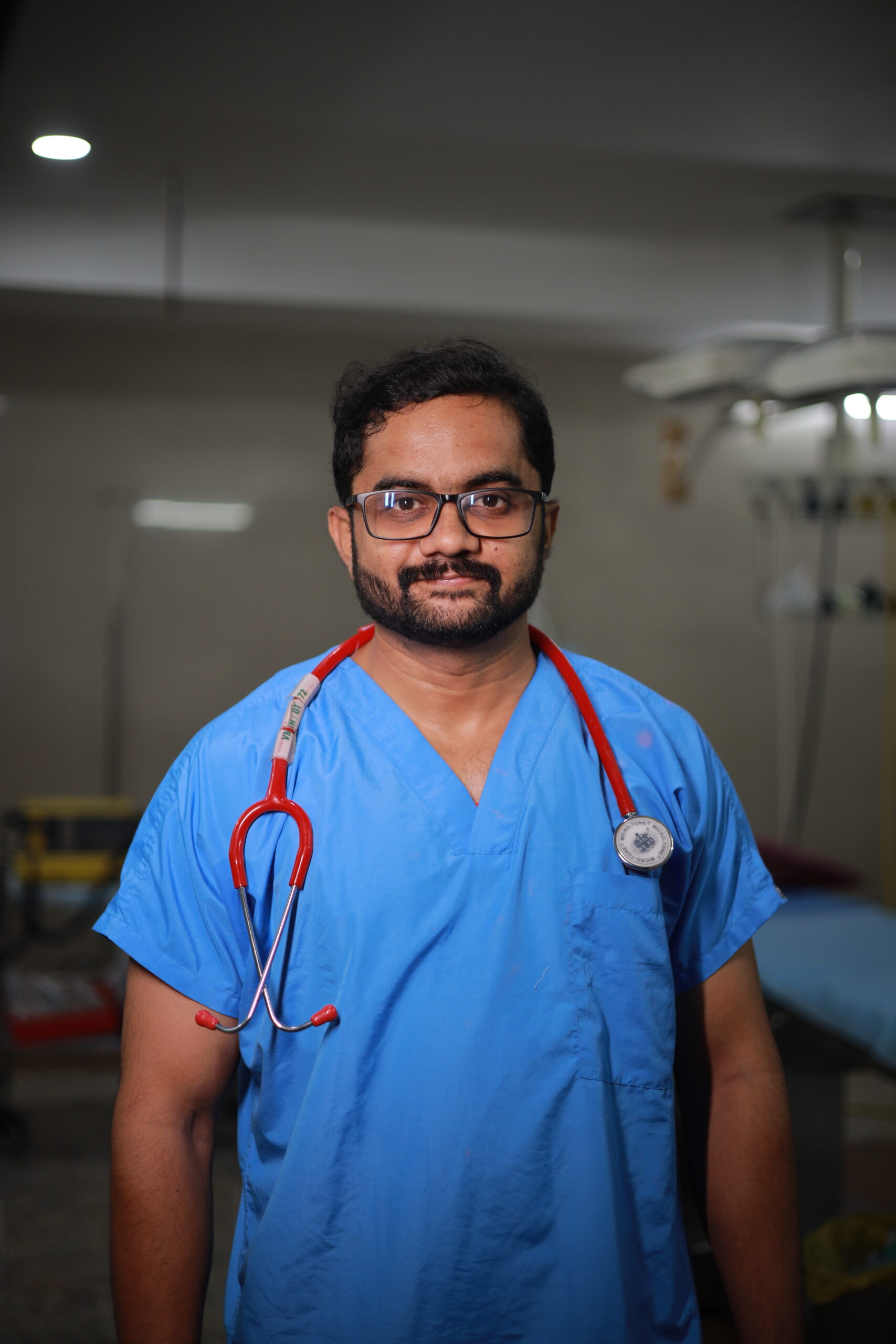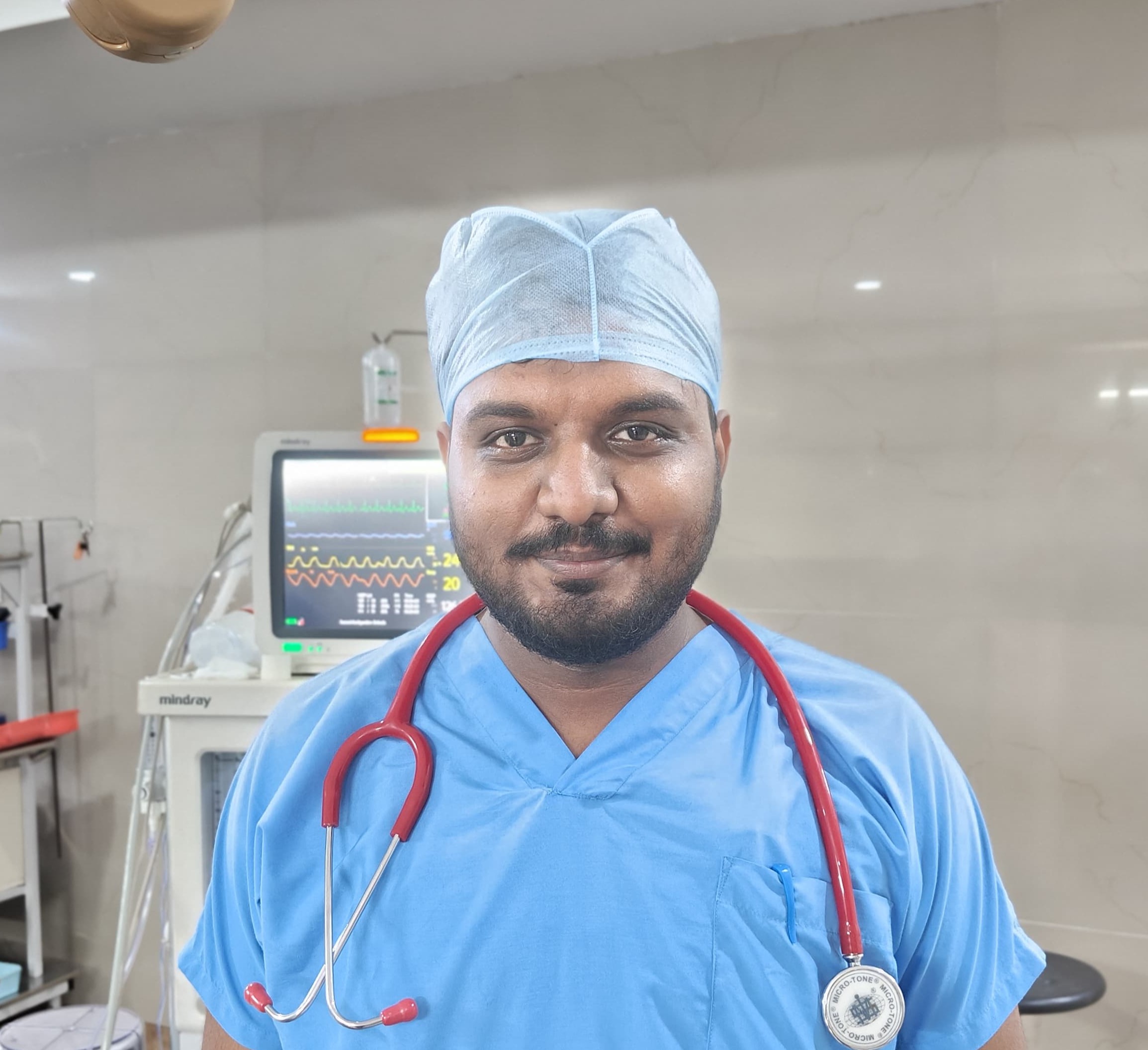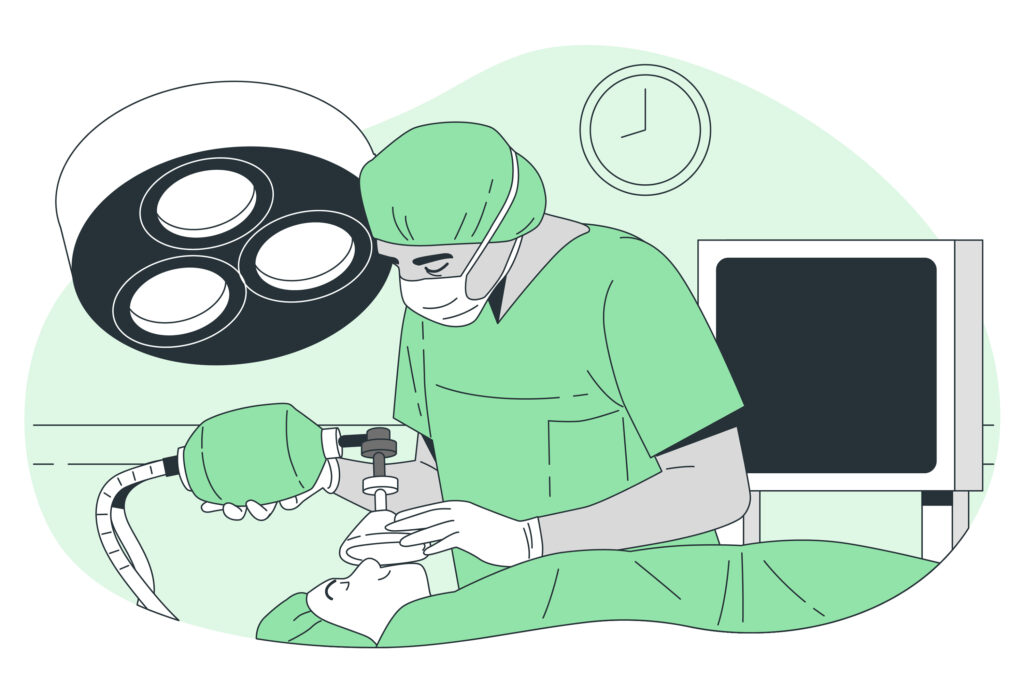Anesthesiology
- Home
- /
- Anesthesiology
Meet Our Team
The Vikram Hospitals plays a statewide services includes the Acquired

Dr. Sivaraman MD.,
Consultant Anesthesiologist
Dr. Thejaswi MD.,
Consultant Anesthesiologist

Dr. ASHARUDEEN MD.,
Consultant Anesthesiologist

Dr. SATHISH MD.,
Consultant Anesthesiologist

Department of Anaesthesiology
The Department of Anaesthesia, Peri-Operative Medicine & Critical Care at Vikram Multispeciality Hospital in Madurai is a dynamic team of experts specializing in anesthesia, pain medicine, and critical care. Our dedicated team offers comprehensive care to patients undergoing intricate surgeries, ensuring a seamless journey from pre-operative assessment and optimization to multidisciplinary collaboration, intraoperative anesthesia management, and post-surgical critical care.
Our commitment to excellence in peri-operative care is reflected in our well-defined and proven protocols, which are designed to ensure the best possible results for our patients.
What is Anesthesia?
Anesthesia is a carefully balanced blend of medications that serve to eliminate or alleviate pain and discomfort experienced by patients undergoing surgical procedures.
Different anesthesia techniques are employed based on the nature and complexity of the surgical intervention.
General Anesthesia induces a state of deep sleep, rendering patients completely unconscious and unaware of the procedure. In contrast, Local or Regional Anesthesia selectively numbs a specific region or body part, enabling patients to remain awake and alert throughout the surgical process.
Services Offered
- Emergency and ICU Management
- Administration of anesthesia in all subspecialties
- Anaesthesia for Painless Delivery (Epidural analgesia)
- Preoperative medical evaluations
- Neuro-Anaesthesia
- Pediatric Anaesthesia
- Management of acute and chronic pain
- Anaesthesia for Radiology, Endoscopy and Dentistry .
Frequently Asked Questions
What is the role of an anesthesiologist during surgery?
An anesthesiologist is a medical doctor who specializes in providing anesthesia and pain management during surgical procedures. Their primary role is to ensure the patient’s comfort and safety by administering appropriate anesthesia, monitoring vital signs, and managing pain before, during, and after surgery.
What types of anesthesia are used in surgery?
Anesthesia can be categorized into three main types: general anesthesia, regional anesthesia, and local anesthesia. General anesthesia induces a state of unconsciousness, regional anesthesia numbs a specific region of the body, and local anesthesia numbs a small area, often used for minor procedures.
Are there risks associated with anesthesia?
Anesthesia is generally safe, but it does carry some risks. These risks can include adverse reactions to medications, breathing difficulties, and, in rare cases, complications like allergic reactions or anesthesia awareness (waking up during surgery). Anesthesiologists are trained to assess and manage these risks to ensure patient safety.

